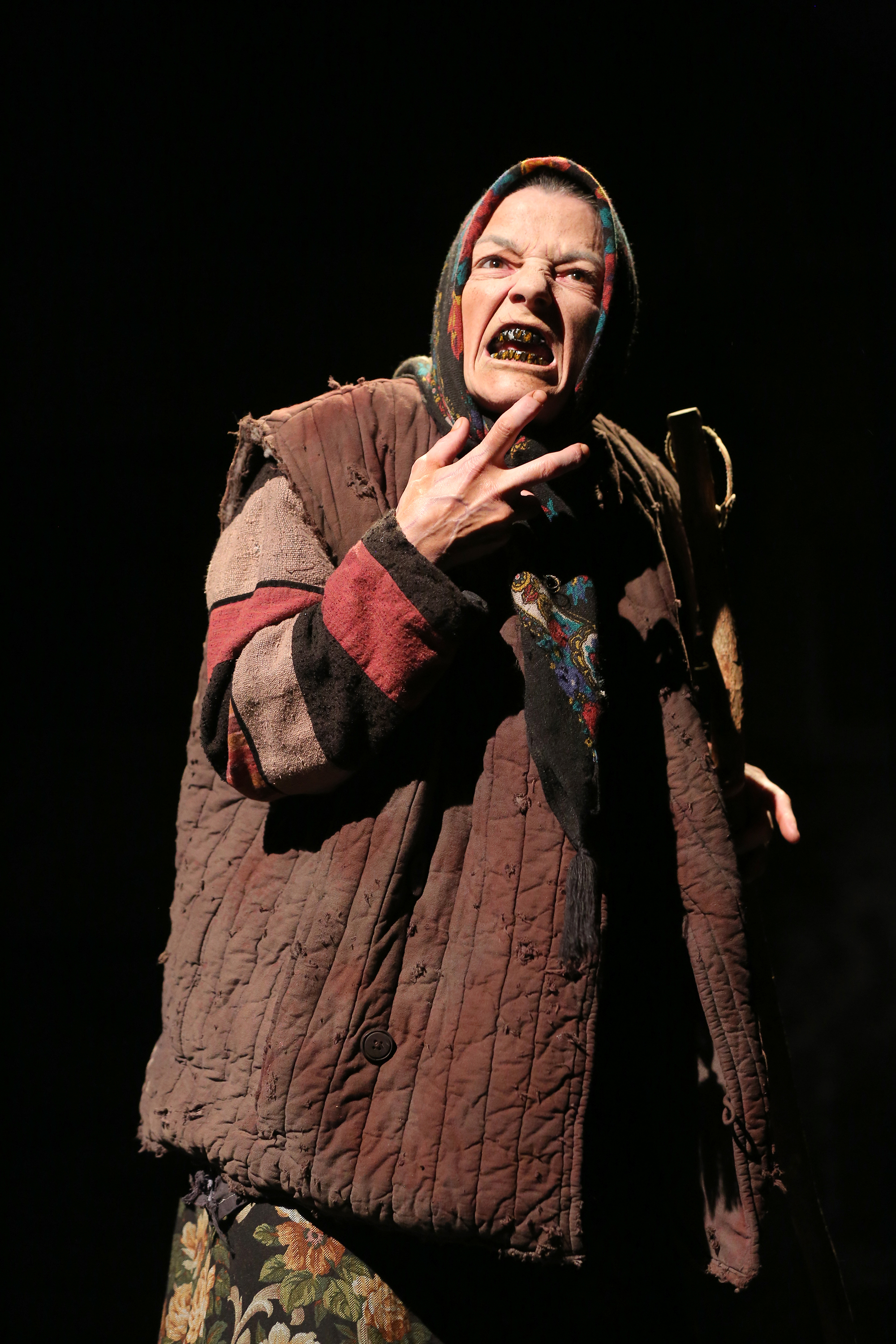Everyone knows that fairy tales are often cautionary stories, told to amuse children and to warn them, in make-believe fashion, about the pitfalls of life. Granted, it’s life with an uncanny edge to it and I suspect that more than one child has grown-up rather disappointed that real life isn’t like that. Meg Miroshnik’s The Fairytale Lives of Russian Girls takes us to a world that is like that—but it’s not just any world, it’s specifically 2005 in the former Soviet Socialists Republic of Russia, and that means that while her heroine Annie is trying to go about her business of re-russifying her Russian (it’s “rust” now, she says), she is met both with the folkloric elements of fairy tale—such as the well-known “wicked witch” figure called Baba Yaga who eats little children, cooking them in her big warm oven (of course), and who also suffers the curse of aging a year every time she is asked a question—and the realities of the “fairy tale” of a capitalist Russia. The combination of the two means that this is a weird world, where bears and tsars, to say nothing of whores and high fashion, are just part of the landscape, where the great desiderata is an apartment of one’s own “in the center” and where Prince Charming, for any Cinderella up from the ashes, is apt to be one of Russia’s newly constituted millionaires.
One of the strengths of this magical and compelling show is that we don’t quite know where it’s going. “Happily ever after” is generally the ending of fairy tales, but there’s a lot to get through to get there. And, in the end, you might disappear like you were never here.
What the play is best at—the mix of the contemporary and the fantastic—the staging at the Rep, in Christopher Ash’s bold and imaginative set design and Chad Raines’ varied sound design, brings to the fore, with doors that rise up from the floor, with a basket of potatoes that gets ambulatory, with a bone-crunching sound every time Baba Yaga (Felicity Jones) cringes at a question, with the ability to suggest a Russian disco, a shack in the woods, an entrance way between two apartments with shape-shifting alacrity, and, especially, with the storied and creepy clutter of Baba Yaga’s lair.
That’s where Annie (Emily Walton) stays because the lair is “really” the apartment of Annie’s Aunt Yaroslava, and Annie was sent there by her mother Olga (Jessica Jelliffe, in heavily-accented Russian-American speak) who ran off from Russia in the 1990s to escape antisemitism. Now, Olga sends her daughter back and, by the rules of fairy tale, that must mean there’s a score to settle. Kindly old Aunt Yaroslava, who hates questions, just loves fattening up her wide-eyed American niece . . .
If you’ve ever read fairy tales to children, then you probably know how much fun it is to play the wicked witch or godmother, and here Felicity Jones (always a pleasure) has the choice role of Baba Yaga/Yaroslava. She’s crafty, creepy, full of the unctiousness of the guardian who is looking after her charge with, all the while, that sense of her own agenda that is so obvious and yet so unreal. Jones is actually sympathetic if only because Annie is so trustingly clueless, in the best tradition of Little Red Riding Hood or Goldilocks. Either that dyevushka better get some sense (or grow some balls) or she deserves her place in auntie’s entrails.
As Annie, Walton does the “gosh and gee willikers” Shirley Temple bit fine but she never quite modulates into a knowing grasp of things, despite a make-over scene that shows off the resources of KJ Kim’s costumes. The what’s-what is left to her posse of grrrls; in director Rachel Chavkin’s hands, they’re like a mash-up of the Spice Girls and Pussy Riot, the punk styling of the latter provided (were there were more!) via composer Chad Raines, with the girls as a band off to the side, Greek chorus style.
Best at making Miroshnik’s tight lines zing is Stéphanie Hayes; she scores as Nastya, the voice of knowing negativity and a whore who, while not having exactly a heart-of-gold, is pressed into service by Annie as a “fairy godmother.” A high point is her telling of one of the Zavyetniye Skazki, or “forbidden folktales” in which a domestic (and patriarchal) “just-so” story becomes, in her hands, a story worthy of the feminist revisionism we should expect. And it’s great to see her pound those drums.
As Katya, Celeste Arias handles the Spice Girls part of the equation. She’s your basic gold-digger, c. 2005, with a cigarette-inflected voice and impossibly long bare legs atop impossibly high shoes, looking like she’s waiting to teeter into a bed owned by whoever has the most bread. It’s her fixation on “the Other Katya,” her sugar daddy’s daughter (Hayes again, with an expression like sweet dessert), that might be her undoing.
Then there’s Masha (Sofiya Akilova) as somewhere in between: she’s basically your put-upon girl-with-a-guy, and she still just wants to have fun, and maybe go to school. She tends to get the unenviable exposition role, but her tale of “Masha and the Bear” opens the show with a convincing sense of how a fairy tale can modulate into just another hard luck story you’re going to hear. And she totally rocks those red thigh-highs.
So, a self-centered Aunt who only appears to be looking out for you; or a friend who is married to a bear of a guy who abuses her and might even kill her; or another friend who is actually having an affair with the father of a girl she has befriended; or a parent who gives her child a task that will either lead to a sense of self-reliance, or make her a victim forever. These are situations that could happen anywhere, and their upshot is that there’s a time, everywhere, when “girls” have to become “adults.”
Miroshnik keeps the juggling between reality and fairy tale nimble and surprising, and Chavkin’s production lets both realms exist in the audience’s imagination, though at times it needs to be a bit more breathless. In the quick change world of The Fairytale Lives of Russian Girls, we find that the old stories do indeed work in our contemporary world, and that girls will triumph—over their female elders and males (no real member of either group was actually harmed in the telling of this play)—if only they stick together and face facts, no matter how bizarre or hard to believe, and are willing to study things like cybernetics and mathematics.
As Annie reflects, Dorothy-like, late in the play: “Sometimes adults have to do things that are really effing hard!”
The Fairytale Lives of Russian Girls By Meg Miroshnik Directed by Rachel Chavkin
Scenic Designer: Christopher Ash; Costume Designer: KJ Kim; Lighting Designer: Bradley King; Composer, Music Director, Sound Designer: Chad Raines; Vocal and Dialect Coach: Jane Guyer Fujita; Fight Director: Rick Sordelet; Production Dramaturg: Amy Boratko; Casting Director: Tara Rubin; Stage Manager: Hannah Sullivan; Photographs by Joan Marcus, courtesy of Yale Repertory Theatre
Yale Repertory Theatre January 31-February 22, 2014







